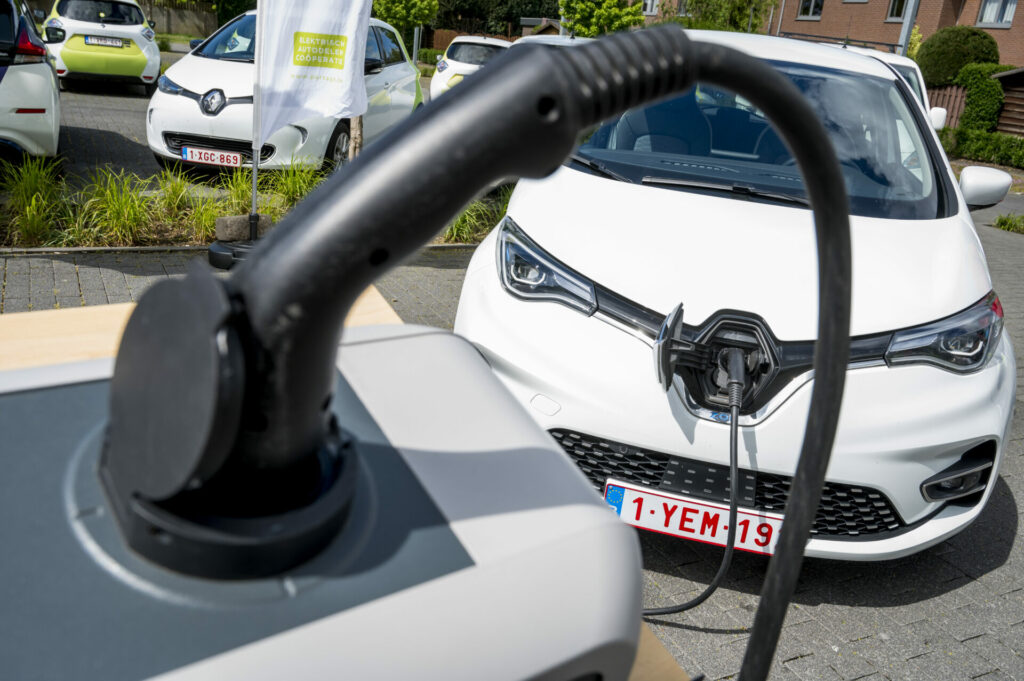One-third of newly registered cars in Belgium last year were electrified, up from a quarter in the previous year. The surge was mainly driven by companies and the self-employed.
The share of electrified cars among new registrations has further increased in 2022. Whereas plug-in, hybrid or 'pure' electric cars accounted for a quarter of new cars in 2021, they made up more than a third of newly registered cars last year, figures released by the automotive federation Febiac on Thursday showed.
This trend is mainly the result of companies (for company cars) and the self-employed taking advantage of the Federal Government's tax reforms which makes emission-free company cars more fiscally attractive in order to ensure sustainable mobility eventually becomes cheaper than fossil-fuelled alternatives.
Eventually, this will result in cars with a combustion engine (including plug-in hybrids) ordered from 2026 no longer being tax deductible, with a gradual phase-out starting from 1 July 2023.
Private vs corporate
Private individuals are showing a bit more hesitancy when it comes to electric vehicles: a survey from last December showed that only one in 10 motorists have switched fossil-fuelled vehicles for low-emission cars; one-third stated that they could not consider such a switch.
Petrol engines still lead the rankings last year but their share has fallen below 50% of the national car stock. Meanwhile, diesel engines continue the decline that started in 2018, when they had a market share of almost 80%; in 2022, they accounted for just 16% of new registrations.
Yet among private individuals, petrol and diesel still have a high market share: together accounting for 79% compared to just 57% for companies and the self-employed. This group accounted for 87% of the registrations for electric cars.
If individuals do buy an electrified car, they are more likely to opt for one with hybrid technology: 54.6% of registrations of this type were by an individual.
There were more than 200 electrified models on the market by the end of 2022 – a new record and largely a result of the CO2 reduction targets imposed by Europe.
Overall registrations falling
Overall registrations of new passenger cars in 2022 fell further (by 4.39%) hitting the lowest level in 27 years as only 366,303 new cars were registered in Belgium. The last time new car sales were this low was in 1995 when 358,868 new cars were sold in the country.
In 2019, before the start of the Covid-19 pandemic in Belgium, 550,003 new passenger cars were registered in the country. In 2020, this dropped to 431,491. In 2021, this dropped even further to 383,123 new passenger cars.
Related News
Issues with the global market last year saw sales of new vehicles drop, impacted by the scarcity of semiconductors resulting in major supply disruptions. But from August, sales in Belgium experienced five consecutive months of growth.
The limited nature of the decline is largely a result of the registrations by companies, which accounted for 62% of total car registrations, up from 58% in the previous year. However, experts forecast that the car fleet will stabilise over the next few years and then even decline.

